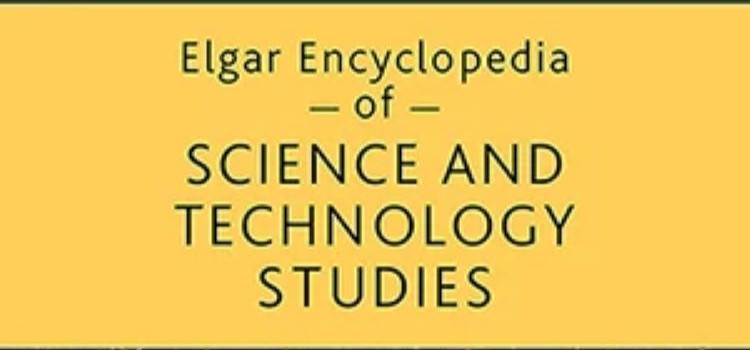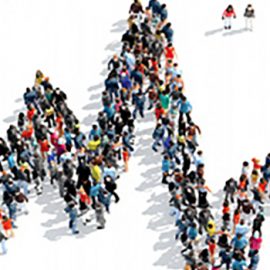
Edward Elgar publishers have announced the publication of a major new encyclopedia, covering core approaches, ideas and concerns within Science and Technology Studies. The book features many former and current CSS colleagues, including Emma Cardwell, Joe Deville, John Law, Maureen McNeil, Adrian Mackenzie, Mike Michael, Maggie Mort, Celia Roberts, Lucy Suchman and Claire Waterton.
CSS members’ contributions to the Encyclopedia include sections on actor-network theory (Michael), infrastructures of knowing (Cardwell & Law, with Solveig Joks), feminist STS (McNeil, Mort, Roberts, Suchman & Waterton), comparison (Deville, with Michael Guggenheim), and digital platforms (Mackenzie).
The introduction to the encyclopedia is available to read for free online
The full table of contents is below.
Please do encourage your libraries to order a copy.
Elgar Encyclopedia of Science and Technology Studies
Edited by Ulrike Felt, Professor, Department of Science and Technology Studies, University of Vienna, Austria and Alan Irwin, Professor, Department of Organization, Copenhagen Business School and Danish Centre for Studies in Research and Research Policy, Aarhus University, Denmark
Contents
Introduction: On encyclopedias, maps and multiplicities in science and technology studies 1
Ulrike Felt and Alan Irwin
PART I FRAMES
1 Co-production 13
Brice Laurent
2 Actor-Network Theory 24
Mike Michael
3 Finetuning terms: heterogeneity, multiplicity and specificity 34
Annemarie Mol
4 The infrastructures of knowing 43
Emma Cardwell, Solveig Joks and John Law
5 Science as culture 52
Tereza Stöckelová
6 Technology as culture 61
Paolo Magaudda
7 Finance, valuation, and assetization: techno-economic organization of markets 72
Kean Birch
8 Valuation studies as a frame in STS 79
Kristin Asdal, Liliana Doganova and Maximilian Fochler
9 Feminist science and technology studies 87
Maureen McNeil, Maggie Mort, Celia Roberts, Lucy Suchman and Claire Waterton
10 Gender studies and STS 97
David A. Rubin
11 Race and genetics 107
Emma Kowal
12 Postcolonial STS 116
Itty Abraham and Suman Seth
13 Ethnography 126
Kim Fortun
14 Methods and politics of public engagement and STS 137
Philip Macnaghten
15 Document studies 145
Kristin Asdal
16 Visual studies and STS 154
Regula Valérie Burri
17 Digital methods in STS: continuities, discontinuities, and reconfigurations 164
Janet Vertesi and David Ribes
18 Quali-quantitative (or non-binary) methods 176
Tommaso Venturini
19 Comparisons: framing similarity, framing difference 185
Joe Deville and Michael Guggenheim
PART II THEMES
20 Public engagement and participation revisited 195
Matthew Kearnes and Jason Chilvers
21 Social movements, science, and technology: conflict and innovation 205
David J. Hess
22 Citizen science 215
Abby Kinchy
23 Science communication 225
Sarah R. Davies and Maja Horst
24 Making & doing: extending STS knowledge production with expression and travel 234
Teun Zuiderent-Jerak and Gary Lee Downey
25 Controversy studies and analysis 244
Mark Elam
26 User studies and co-creation 254
Torben Elgaard Jensen and Sampsa Hyysalo
27 Risk and disaster in STS 264
Makoto Takahashi
28 Laboratory studies and scientific practice 273
Michael Lynch
29 Indigenous knowledge traditions and science 283
Helen Verran
30 Non-knowledge and ignorance 291
Daniel Lee Kleinman
31 Universities as spaces of change 301
Ruth Müller
32 Indicators and their impact for academia 308
Alex Rushforth and Sarah de Rijcke
33 Time and temporalities in academic research 318
Ulrike Felt
34 Infrastructures 328
Paul N. Edwards, Anne Beaulieu, Christine L. Borgman, Ashley Carse, Steven J. Jackson, Robin Williams and Antti Silvast
35 Innovation 340
Alan Irwin and Sebastian Pfotenhauer
36 Following values in engineering design and conception practices 349
Mylène Tanferri and Dominique Vinck
37 Engineering studies and STS 357
Thomas De Pree and Ryan Hearty
38 Science and technology policy-making 368
Brice Laurent
39 Expertise, legitimacy, and decision-making 377
Göran Sundqvist
40 Regulatory science 387
David Demortain
41 Science advice 397
Jeroen P. van der Sluijs
42 The making of futures in sociotechnical worlds 407
Catharina Landström and Linda Soneryd
43 Responsibility—From ELSI to responsible innovation 416
Stephen Hughes and Jack Stilgoe
44 Care in technoscience 426
Martha Kenney
45 Inequality 435
Melanie Smallman
46 Economic science and economic technology 443
Fabian Muniesa
47 Climate change and STS 451
Silke Beck, Tim Forsyth and Martin Mahony
48 Environment and STS 460
Steven Yearley
49 Energy 471
Clark A. Miller
50 The politics of knowledge in health and biomedicine 481
Steven Epstein, Jaimie Morse and Kellie Owens
51 Digital health 492
Henriette Langstrup and Klaus Hoeyer
52 Digital transformations 501
Annika Richterich and Sally Wyatt
53 Big data, algorithms and artificial intelligence 511
Katja Mayer
54 Digital platforms 521
Adrian Mackenzie
PART III STORIES
55 Cities: stories of urban STS 533
Ignacio Farías and Tomás Criado
56 Nanotechnology: STS reflections and interventions 543
Noela Invernizzi and Guillermo Foladori
57 Security and war 553
Brian Balmer
58 STS and outer space: extending the gaze 562
Nina Klimburg-Witjes
59 Pandemics and the politics of knowledge 569
Stephen Hilgartner
60 Pharmaceuticalisation 579
Sergio Sismondo
61 Sensors 587
Jennifer Gabrys
62 STS meets robotics 596
Miquel Domènech and Núria Vallès-Peris


